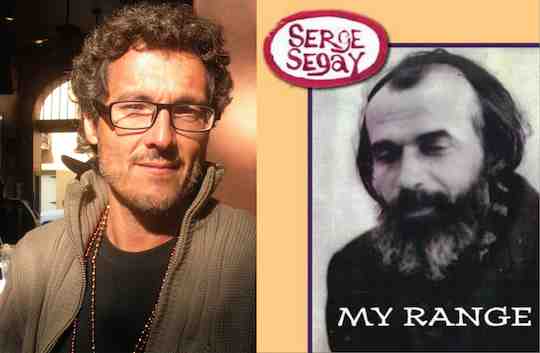This week, our editors on the ground report from events and lectures, spanning large-scale festivals and intimate readings. Julia Sherwood discusses a spotlight on Slovak authors at Month of Authors’ Readings, and Thirangie Jayatilake is here with notes from a talk regarding the current state of Sri Lankan academic publishing. Read on for more!
Julia Sherwood, Editor-at-Large, reporting from Slovakia
Over the summer, literary organizers in Slovakia have tentatively returned to live events, mostly held in the open air. Audience sizes were kept smaller and featured mostly domestic authors because of continuing travel restrictions. Many of these events were streamed and can be watched later—this hybrid format may be one positive legacy of the pandemic.
Slovak writers were the guests of honour at Central Europe’s largest literary festival, the annual Month of Authors’ Readings (MAČ) organized by Větrné mlýny, a publishing house in Brno, Czech Republic and, on the Slovak side, by Literárnyklub.sk. Though the number of locations and participating writers was slightly scaled down, its ambition was certainly not, with thirty-one pairs of Slovak and Czech authors reading from their works every day of the month in both Bratislava and Brno, with some also travelling to Ostrava and Lviv in neighbouring Ukraine. Videos of all readings are available on the MAČ website alongside podcast interviews with the Slovak writers.
Although Pohoda, Slovakia’s largest outdoor music festival, was held from July 7 to 11 at its usual location—a former airfield in Trenčín—was limited to one thousand spectators per day, undaunted publisher Kali Bagala continued the tradition of presenting established as well as emerging authors at the Martinus Literary Tent (sponsored by the bookselling chain Martinus and also organized by Literárnyklub.sk). Young poets Richard L. Kramár and Michal Baláž introduced their second poetry collections, and Lukáš Onderčanin talked about Utópia v Leninovej záhrade [A Utopia in Lenin’s Garden], his documentary novel about some thousand idealistic men and women from Czechoslovakia who headed for Kyrgyzstan in the 1920s to help build socialism. Acclaimed poet and writer and past Asymptote contributor Jana Beňová discussed her latest non-fiction book of rambles around Bratislava, Flanérova košeľa (The Flâneur’s Shirt). There were readings by authors shortlisted for this year’s Anasoft Litera Prize, Ivana Gibová (Eklektik Bastard) and Zuzana Šmatláková (Nič sa nestalo/Nothing Happened), as well as by Alenka Sabuchová whose novel Šeptuchy (The Whisperers) won the award in 2020. A sample from The Whisperers can be heard on the LIC_Online YouTube Channel, along with excerpts from several other books by contemporary Slovak writers in English and German translation. READ MORE…


